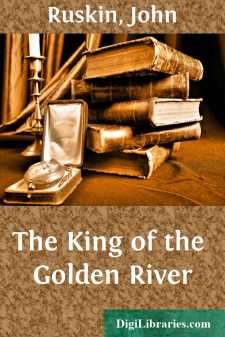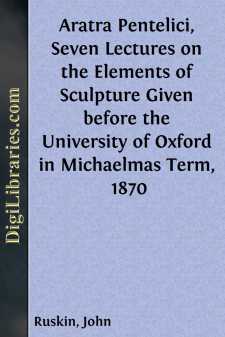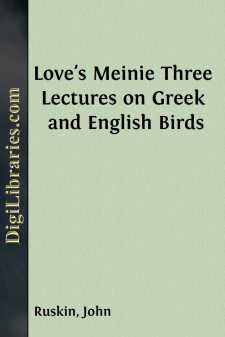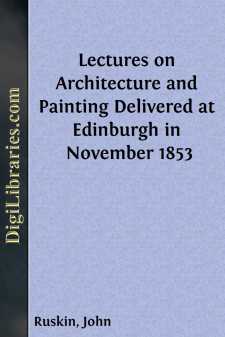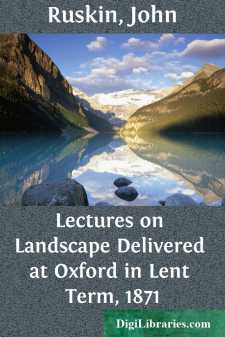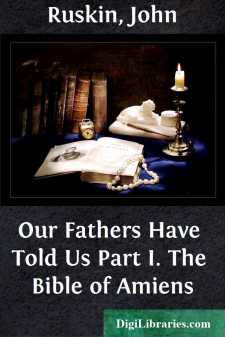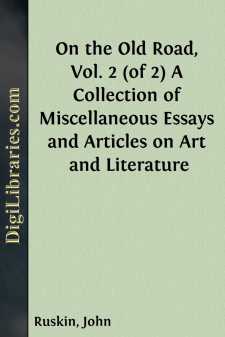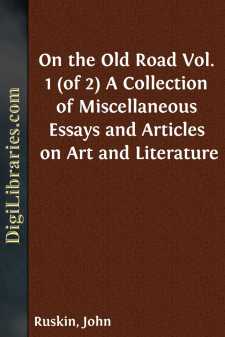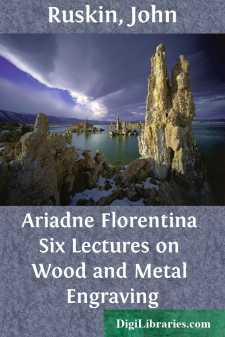Categories
- Antiques & Collectibles 13
- Architecture 36
- Art 48
- Bibles 22
- Biography & Autobiography 813
- Body, Mind & Spirit 142
- Business & Economics 28
- Children's Books 17
- Children's Fiction 14
- Computers 4
- Cooking 94
- Crafts & Hobbies 4
- Drama 346
- Education 46
- Family & Relationships 57
- Fiction 11829
- Games 19
- Gardening 17
- Health & Fitness 34
- History 1377
- House & Home 1
- Humor 147
- Juvenile Fiction 1873
- Juvenile Nonfiction 202
- Language Arts & Disciplines 88
- Law 16
- Literary Collections 686
- Literary Criticism 179
- Mathematics 13
- Medical 41
- Music 40
- Nature 179
- Non-Classifiable 1768
- Performing Arts 7
- Periodicals 1453
- Philosophy 64
- Photography 2
- Poetry 896
- Political Science 203
- Psychology 42
- Reference 154
- Religion 513
- Science 126
- Self-Help 84
- Social Science 81
- Sports & Recreation 34
- Study Aids 3
- Technology & Engineering 59
- Transportation 23
- Travel 463
- True Crime 29
John Ruskin
John Ruskin was a prominent 19th-century English writer, art critic, and social thinker known for his influential works on art, architecture, and society. His notable works include "Modern Painters," where he defended the work of J.M.W. Turner, and "The Stones of Venice," which analyzed Venetian art and architecture. Ruskin's ideas on social justice and the role of art in society had a profound impact on the Victorian era and beyond, inspiring movements such as the Arts and Crafts Movement.
Author's Books:
Sort by:
by:
John Ruskin
CHAPTER I In a secluded and mountainous part of Stiria there was in old time a valley of the most surprising and luxuriant fertility. It was surrounded on all sides by steep and rocky mountains rising into peaks which were always covered with snow and from which a number of torrents descended in constant cataracts. One of these fell westward over the face of a crag so high that when the sun had set to...
more...
by:
John Ruskin
PREFACE. 1. I must pray the readers of the following Lectures to remember that the duty at present laid on me at Oxford is of an exceptionally complex character. Directly, it is to awaken the interest of my pupils in a study which they have hitherto found unattractive, and imagined to be useless; but more imperatively, it is to define the principles by which the study itself should be guided; and to...
more...
by:
John Ruskin
PREFACE. [Pg v] The ladies to whom these letters were written have been, throughout their brightly tranquil lives, at once sources and loadstones of all good to the village in which they had their home, and to all loving people who cared for the village and its vale and secluded lake, and whatever remained in them or around of the former peace, beauty, and pride of English Shepherd Land. Sources they...
more...
by:
John Ruskin
PREFACE. Brantwood, 9th June, 1881. Quarter past five, morning. The birds chirping feebly,—mostly chaffinches answering each other, the rest discomposed, I fancy, by the June snow; the lake neither smooth nor rippled, but like a surface of perfectly bright glass, ill cast; the lines of wave few and irregular, like flaws in the planes of a fine crystal. I see this book was begun eight years...
more...
by:
John Ruskin
The following Lectures are printed, as far as possible, just as they were delivered. Here and there a sentence which seemed obscure has been mended, and the passages which had not been previously written, have been, of course imperfectly, supplied from memory. But I am well assured that nothing of any substantial importance which was said in the lecture-room, is either omitted, or altered in its...
more...
by:
John Ruskin
OUTLINE. 1. In my inaugural lecture, I stated that while holding this professorship I should direct you, in your practical exercises, chiefly to natural history and landscape. And having in the course of the past year laid the foundational elements of art sufficiently before you, I will invite you, now, to enter on real work with me; and accordingly I propose during this and the following term to give...
more...
by:
John Ruskin
PREFACE. The long abandoned purpose, of which the following pages begin some attempt at fulfilment, has been resumed at the request of a young English governess, that I would write some pieces of history which her pupils could gather some good out of;—the fruit of historical documents placed by modern educational systems at her disposal, being to them labour only, and sorrow. What else may be said...
more...
by:
John Ruskin
THE NATIONAL GALLERY SITE COMMISSION. Evidence of John Ruskin, Monday, April 6, 1857. 114. Chairman. Has your attention been turned to the desirableness of uniting sculpture with painting under the same roof?—Yes. What is your opinion on the subject?—I think it almost essential that they should be united, if a National Gallery is to be of service in teaching the course of art. Sculpture of all...
more...
by:
John Ruskin
1st February, 1878. 1. In seven days more I shall be fifty-nine;—which (practically) is all the same as sixty; but, being asked by the wife of my dear old friend, W. H. Harrison, to say a few words of our old relations together, I find myself, in spite of all these years, a boy again,—partly in the mere thought of, and renewed sympathy with, the cheerful heart of my old literary master, and partly...
more...
by:
John Ruskin
DEFINITION OF THE ART OF ENGRAVING. 1. The entrance on my duty for to-day begins the fourth year of my official work in Oxford; and I doubt not that some of my audience are asking themselves, very doubtfully—at all events, I ask myself, very anxiously—what has been done. For practical result, I have not much to show. I announced, a fortnight since, that I would meet, the day before yesterday, any...
more...


